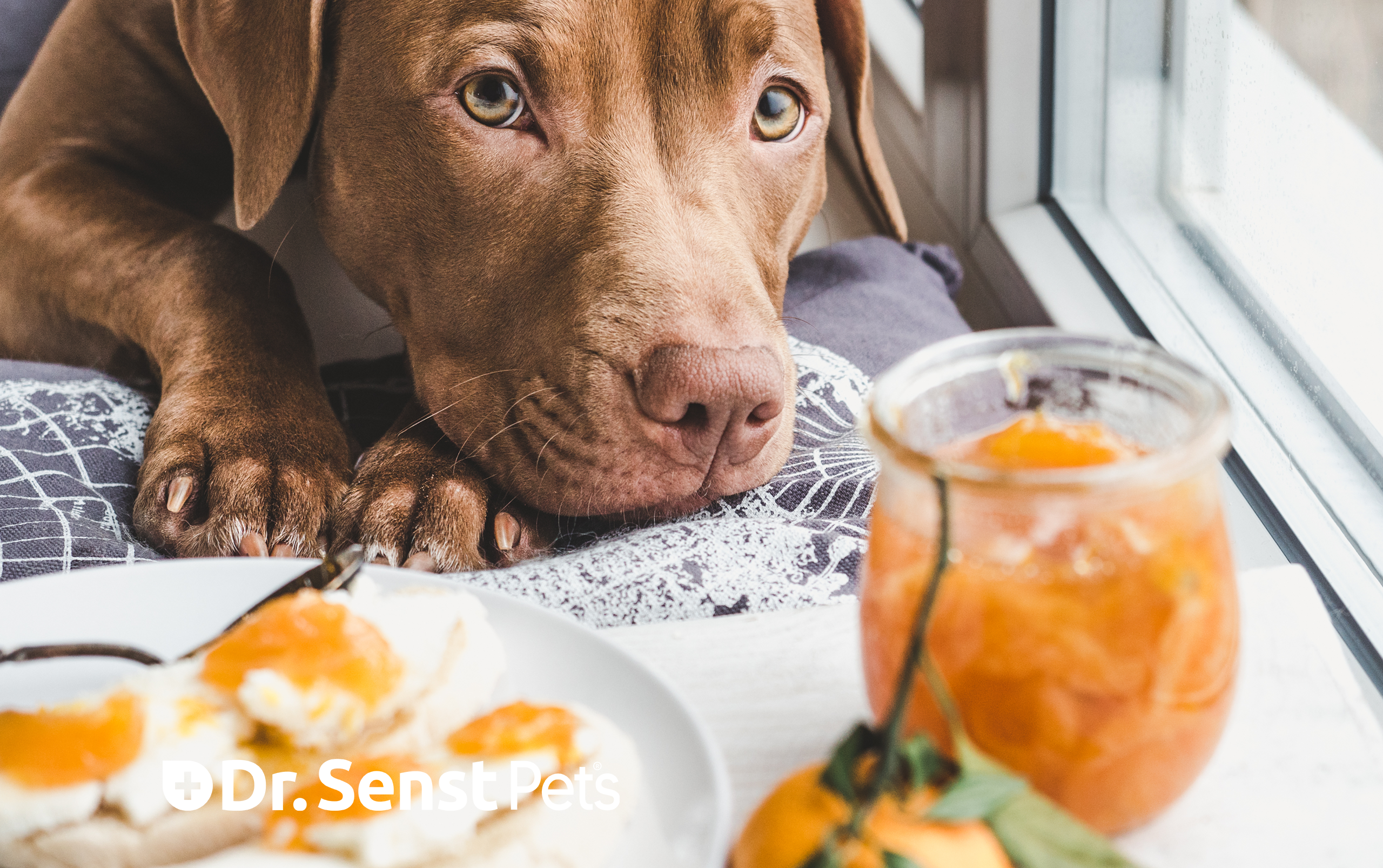
- by Dr.Thilo Senst
Can Dogs Eat Eggs? An Expert’s Insight on This Nutritious Food for Dogs
- by Dr.Thilo Senst
As pet owners, we constantly search for foods that can provide our furry companions with the best nutrition. One question often asked is: can dogs eat eggs? This simple query may arise out of curiosity, or perhaps you’ve noticed how much your dog enjoys the occasional kitchen scrap. Let's dive deeper into this topic and explore everything you need to know about dogs and eggs.
Yes, dogs can eat eggs, and they can be a nutritious addition to their diet when served correctly. Eggs are packed with protein, vitamins, and essential fatty acids. However, just like with any other food, there are some guidelines to follow to ensure that they benefit your dog’s health rather than cause potential harm.
Eggs are often described as a “complete food” because they contain a wide array of nutrients:
In fact, a recent UK study found that 84% of dog owners reported noticeable improvements in their pet's coat condition after incorporating eggs into their diet (Pet Food Manufacturers Association, 2023).
Protein is the building block of life, and eggs provide dogs with the essential amino acids they need to maintain strong muscles and overall health. For active and working dogs, eggs can be particularly beneficial in keeping their energy levels up.
Thanks to the abundance of fatty acids, eggs can help improve your dog’s skin and coat health. Dogs suffering from dry skin, flakiness, or itching may benefit from the additional nutrients found in eggs. Eggs provide moisture from within, working as a natural conditioner.
Eggs contain riboflavin and selenium, both of which play a vital role in your dog's digestive system. They can help break down and process other foods more efficiently, making eggs a wonderful supplement for dogs with sensitive stomachs. Pairing eggs with a product like Dr. Senst Probiotics For Gut Health Soft Chews can further promote digestive wellness.
Eggs contain antioxidants such as lutein and zeaxanthin, which are important for your dog's immune function. These antioxidants can help neutralise harmful free radicals in your pet’s system.
This is where things get tricky. While eggs can be a nutritious treat for dogs, feeding them raw eggs may carry certain risks. Raw eggs could potentially contain bacteria such as Salmonella, which can lead to food poisoning. The safest approach is to cook the eggs before feeding them to your dog.
Analogy: Think of raw eggs like a double-edged sword. Just like we wouldn’t eat raw chicken due to the risk of contamination, the same caution applies to dogs and raw eggs. Cooking the eggs minimises the risks while preserving their nutritional benefits.
Here are a few safe and easy ways to prepare eggs for your dog:
When introducing eggs into your dog’s diet, start with small portions and monitor how your dog reacts. Each dog is different, and it’s essential to ensure they don’t have an adverse reaction.
While eggs are nutritious, they are also calorie-dense, so moderation is key. On average, one or two eggs per week should be enough for most dogs, depending on their size and daily activity. Overfeeding eggs can lead to weight gain, and excess protein may stress the kidneys. If you’re ever unsure, consult your vet.
Although eggs offer several health benefits, there are some risks to consider:
1. Can puppies eat eggs?
Yes, puppies can eat eggs, but in moderation. Eggs provide valuable nutrients that support growth, but they should be introduced gradually.
2. Can dogs eat eggshells?
Yes, eggshells are an excellent source of calcium, which supports bone health. However, they should be ground into a fine powder before being added to your dog’s meal to prevent choking.
3. Can dogs eat scrambled eggs?
Yes, scrambled eggs are a great way to feed your dog eggs. Just be sure not to add any seasoning or oils that could harm their digestive system.
4. Can dogs eat eggs every day?
It’s not recommended to feed your dog eggs daily due to the high fat and calorie content. Moderation is key, and one or two eggs per week is generally sufficient for most dogs.
5. Are eggs good for dogs with sensitive stomachs?
Yes, eggs are easy to digest and can help soothe dogs with sensitive stomachs. They are a great protein source for dogs prone to digestive issues.
In conclusion, eggs are a nutritious, protein-packed food that can offer numerous health benefits to your dog when served in moderation. From promoting skin and coat health to supporting digestive function, they are a versatile addition to your dog’s diet. However, safety precautions like cooking the eggs and feeding them in moderation are crucial.
For pet owners who want to ensure their dogs are getting the most out of their diet, consider pairing eggs with high-quality supplements like Dr. Senst Probiotics For Gut Health Soft Chews to promote healthy digestion, or try Dr. Senst Anti Itch & Allergy Relief Soft Chews to keep your dog’s coat in top condition.
Give your dog the balanced diet they deserve with Dr. Senst Probiotics For Gut Health Soft Chews and Dr. Senst Anti Itch & Allergy Relief Soft Chews. These supplements, combined with nutritious foods like eggs, ensure your dog stays happy and healthy!
![]()
Enter your details & download our comprehensive 50+ page printable Dr. Senst Pet Care Planner completley FREE! - keep track of all your pet’s needs, from medical history and training to vet visits, grooming, diet, and more!










Share:
The Importance of Cleaning Your Cat’s Ears to Prevent Infections
Can Dogs Eat Raspberries? Nutritional Benefits and Feeding Tips